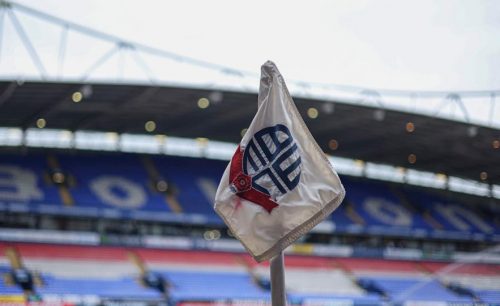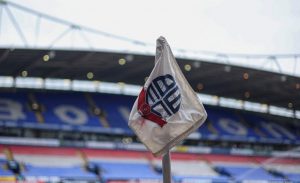Promotion-chasing Bolton Wanderers boosts turnover but sees losses increase

Bolton Wanderers FC has scored a financial boost after seeing its turnover jump in the year ended June 30, 2023.
However, its pre-tax loss increased, fueled by continued investment in the playing squad in search of elevation to the Championship.
Accounts filed at Companies House show the Trotters achieved revenues of £19.429m during the period, substantially ahead of the previous year’s £13.829m figure.
But losses widened from £3.694m in 2022, to £5.460m.
The directors’ report to the accounts said: “The financial year has seen significant progress as the group continued to invest in the first team squad and stadium improvements, which has resulted in a managed trading loss.”
The club is currently vying for promotion from League One to the lucrative Championship. As of April 12, it lay third in the table, just outside the automatic promotion spots, two points behind Derby County, but with a game in hand on its nearest rival.
Bolton was saved from expulsion from the league in August, 2019, after its sale, by administrators, to new owner, Football Ventures.
Former owner, Ken Anderson, came in for stinging criticism from joint administrator, Paul Appleton, following the sale, who said: “Sadly, Mr Anderson has used his position as a secured creditor to hamper and frustrate any deal that did not benefit him or suit his purposes.”
Football Ventures was set up by current chair, Sharon Brittan, and Parminder Basran in January 2019, with the purpose of buying the club.
The club’s shareholders now include a group of Geneva-based oil traders, part of an entity called BMLL Limited, led by Ben Luckock, global head of oil at trading house Trafigura Group, and the brother of Nick Luckock, who led the rescue of the Whites in 2019.
Ben Luckock said the group consists of around 25 families, some of whom are also executives at Trafigura. BMLL now owns up to 35% of the club.
In an interview with financial news TV channel Bloomberg earlier this year, he said: “We’re willing to be very much in the background. I’ve got a huge amount of trust in my brother and zero interest in delving into any control aspects.”
The latest reporting period represents the fourth year of trading since the buyout and the directors’ report in the accounts revealed that attendances have increased, impressively, from an average of 15,439 the previous season to 18,814, including around 16,000 season ticket holders.
Bolton narrowly missed out on promotion in the year of the latest accounts, losing 1-0 to Barnsley in the second semi-final leg, losing 2-1 on aggregate.
However, it tasted success in the final of the Papa Johns EFL Trophy, beating Plymouth Argyle 4-0, the biggest win in an EFL Trophy Wembley final, in front of a 79,389 crowd.
Within the turnover figure, football activities represented the biggest contributor, rising from £4.943m the previous year to £6.249m during the reporting period.
Accommodation and leisure activities, including the stadium-based Bolton Whites Hotel facility, brought in £4.336m (£3.682m in 2022), while food and beverage income was £2.246m (£1.632m).
Commercial income almost doubled from £693,418 to £1.158m, and retail also showed a healthy increase, from £950,545 to £1.156m.
Total staffing increased from 384 to 416 people, including 198 linked to management, administration and players, up from 130 previously. However, hotel staffing fell from 120 to 92.
Employee wages and benefits increased from £10.264m in 2022 to £12.834m. Directors took no remuneration.
During the financial year the business issued a fan-backed Bond, which raised £4.3m, and received shareholder funding of £2.75m.
The accounts also show that, post-reporting period, the club issued 673,664 new shares to BMLL, for a total of £4,499,947.
Cash at bank and in hand stood at £4,072,754 by June 30, 2023, compared with £1,221,971 at July 1, 2022.
The directors’ report said: “Despite the loss to 30 June 2023, the group has a sound base from which to further improve the business.
“The group is reliant on funding from its shareholders and such funding has been and continues to be made available from the shareholders when required.”








